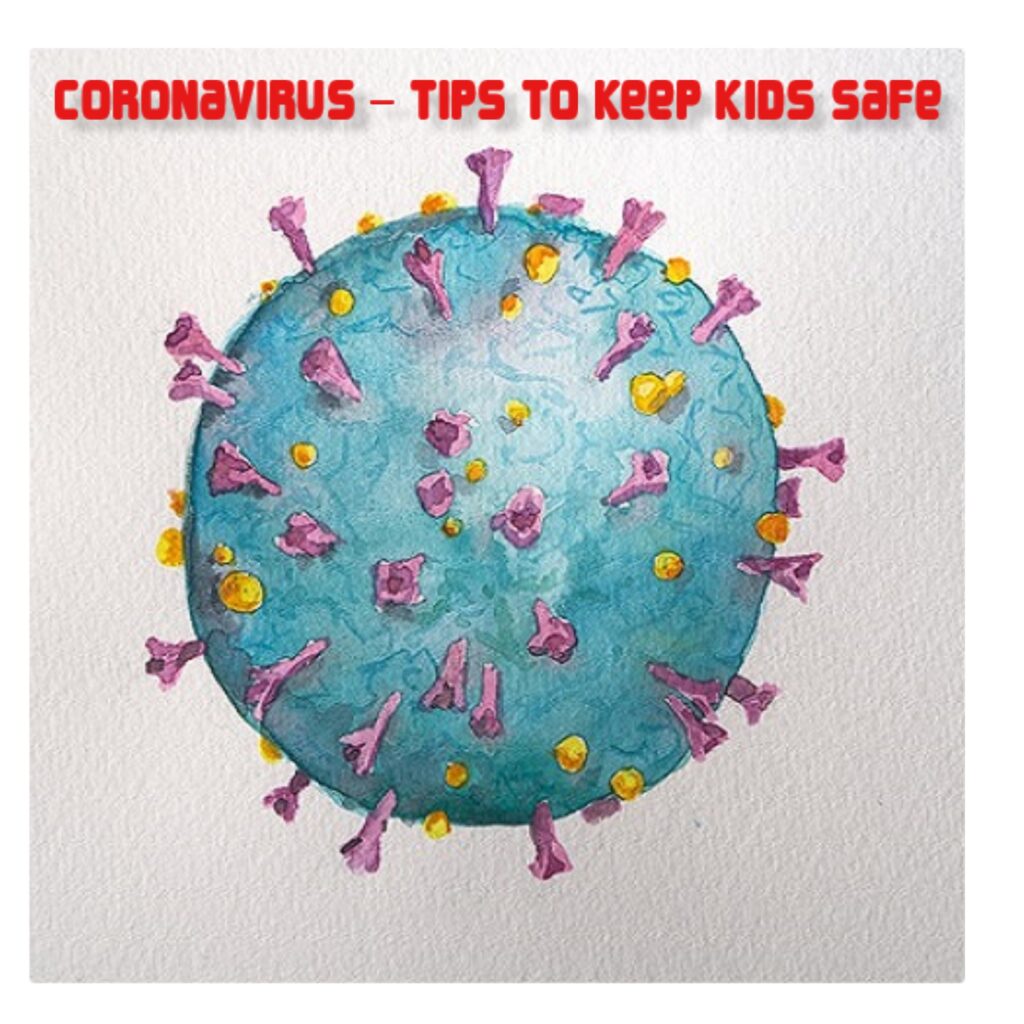Coronavirus – Keeping Your Children Safe

With schools closed and many parents working from home, families are spending an increased amount of time together. Parents are left wondering what they can do to protect their children from Coronavirus at home, in thwir community and while interacting with family and friends.
A good starting point on their inquiry to understanding how to protect their children, is for parents to learn everything they cab about the Coronavirus.
What is the COVID-19 Virus?
Coronaviruses are a type of virus. There are several different types and some of them cause disease. In December, 2019, a new Coronavirus was identified in China. It causes a respiratory illness called COVID-19.
There is currently no vaccine to prevent COVID-19 and no treatment to cure it. It continues to surge becoming a global pandemic.
As a result, parents want to know how the virus affects children and what they can do prevent their children from getting infected.
How COVID-19 Affects Children
Most children with COVID-19 infections experience mild symptoms and usually do not require hospitalization.
A new study, published March 16 in Pediatrics looked at data from January 16 to February 8 on 2ooo children in China. It found that Kids infected with Covid-19 were affected less severely than adults. Infants had higher rates of illness than older kids due to their immune systems being less developed.
Although this data gives parents and caregivers a sense of relief, the fact remains that some children will get infected.
Symptoms of COVID-19 in Children
According to The Center for Disease Control and Prevention (CDC) symptoms in children are the same as those experienced by adults.
These common symptoms include:
- Fever
- Cough
- Difficulty Breathing
Additional symptoms some children may experience include:
- Vomiting and Diarrhea
- Refusing liquids with decreased urine frequency
- Crying without ability to be consoled
- Fever that is not responsive to fever-reducing medications
- Behavior that is not normal for your child
5 Tips to Prevent Children from Contacting COVID-19
Children should be thought the importance of practicing everyday actions that can help prevent the spread of respiratory illnesses including:
Wash Hands – Children should be instructed to wash their hands often with soap and water for at least 20 seconds, especially, after going to the bathroom, blowing their nose, coughing or sneezing. The CDC guidelines on hand washing can be found here
Social Distancing – Children should understand the importance of avoiding close contact with their friends, people in their community and people who are sick.
No Face Touching – Kids should avoid touching their eyes, nose & mouth to prevent getting an infection through these mucus membranes.
Use The Elbow – Children should sneezing into their elbows, not their hands to keep respiratory droplets emitted from sneezing contained.
Facemask – A facemask should be worn, if they are sick, or around a sick person. Its a tool that helps reduce the spread of viruses.
What to do if Your Child Gets Sick
If your child is sick with COVID-19 or you suspect they are infected with the virus that causes COVID-19, you should take steps to help prevent the disease from spreading to other people in your home and community.
Steps you should take if your child is experiencing concerning symptoms are:
- Contact your child’s Pediatrician – they will discuss next steps before recommending whether you should go to the hospital.
- If your child is experiencing respiratory difficulties call 911
According to The Centers for Disease Control and Prevention (CDC), “It’s not known yet whether some children may be at higher risks for severe illness, for example, children with underlying medical conditions and special healthcare needs. There is much more to be learned about how the disease affects children.”
For further information on how COVID-19 affects children and how you can help to protect them from contacting the virus visit the CDC website here



